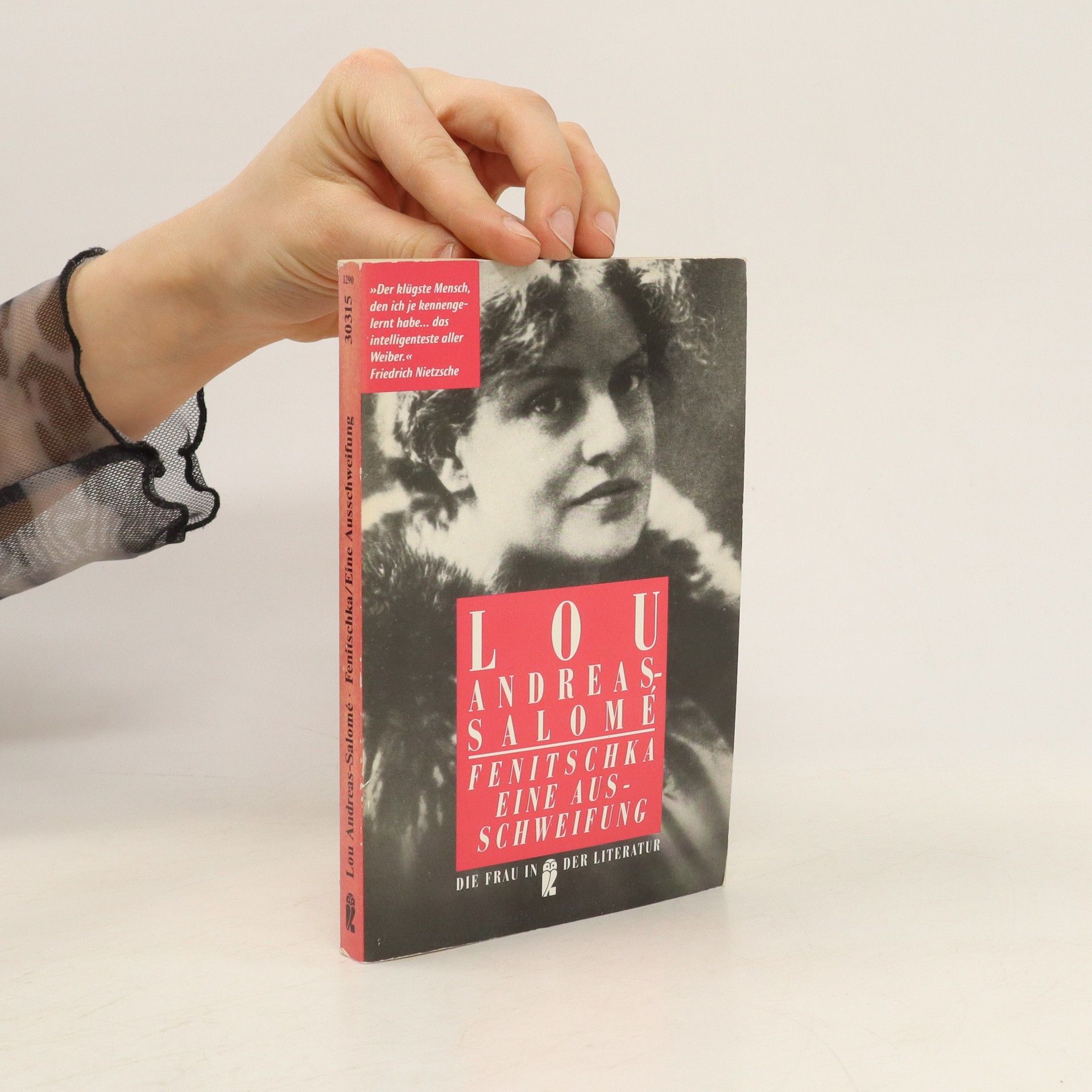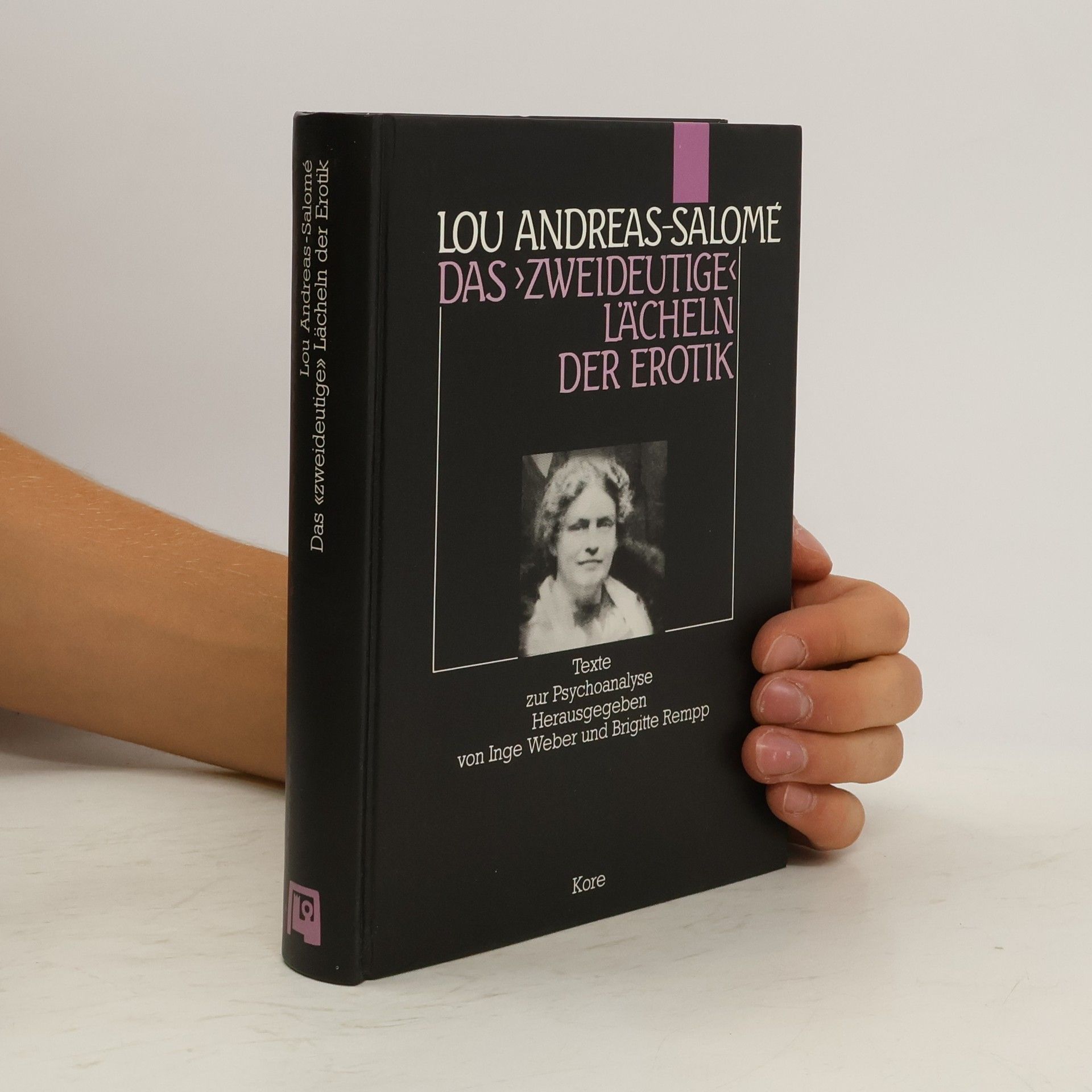The first English translation of a presciently modern portrayal of emerging feminist sensibilities in a nineteenth-century family, by one of Germany's leading pre-First World War writers.
Lou Andreas Salomé Boeken
Lou Andreas-Salomé bezat een opmerkelijke breedte aan intellectuele nieuwsgierigheid, een eigenschap die ertoe leidde dat ze vriendschappen sloot met veel van de meest vooraanstaande denkers en kunstenaars van die tijd. Als productief schrijfster overspande haar oeuvre romans, essays en toneelstukken, en ze onderscheidde zich als een pioniersstem in de verkenning van vrouwelijke seksualiteit en psychoanalyse. Tegen het einde van haar leven schreef ze een memoire die haar ervaringen als onafhankelijke vrouw weerspiegelde, en een inkijk gaf in een leven geleefd naar haar eigen voorwaarden. Haar diepgaande ideeën en unieke perspectief lieten een significante indruk achter op het intellectuele landschap.







This English translation of Friedrich Nietzsche in seinen Werken offers a rare, intimate view of the philosopher by Lou Salomé, a free-thinking, Russian-born intellectual to whom Nietzsche proposed marriage at only their second meeting. Published in 1894 as its subject languished in madness, Salomé's book rode the crest of a surge of interest in Nietzsche's iconoclastic philosophy. She discusses his writings and such biographical events as his break with Wagner, attempting to ferret out the man in the midst of his works. Salomé's provocative conclusion -- that Nietzsche's madness was the inevitable result of his philosophical views -- generated considerable controversy. Nietzsche's sister, Elisabeth Förster-Nietzsche, dismissed the book as a work of fantasy. Yet the philosopher's longtime acquaintance Erwin Rohde wrote, "Nothing better or more deeply experienced or perceived has ever been written about Nietzsche." Siegfried Mandel's extensive introduction examines the circumstances that brought Lou Salomé and Nietzsche together and the ideological conflicts that drove them apart.
To Nietzsche, she was the "the smartest person I ever knew," the perfect heir to his philosophy, "the best and most fruitful ploughland" for his ideas. To Rainer Maria Rilke, she was an "extraordinary woman" without whose influence "my whole development would not have been able to take the paths that have led to many things." And to Sigmund Freud, she was "an understander par excellence," the second woman in his life (after his beloved sister-in-law Minna Bernays) and the only woman among his colleagues with whom he would maintain a long and continuous correspondence. Although Lou Andreas-Salome is best known today for her relationships with these three men of genius, she was well known in her own right during the early years of this century as both a writer and a psychoanalyst. She commuted between artistic circles in Berlin, Vienna, Paris and St. Petersburg during the formative years of modern European culture, and her writings -- on religion, psychoanalysis and women -- reflected many of the themes that would preoccupy thinkers throughout this century. Her memoirs, "Looking Back," published posthumously in German in 1951, are now available for the first time in English.
The erotic
- 124bladzijden
- 5 uur lezen
Psychoanalyst and author Lou Andreas-Salome may seem to be a figure remote from us, one belonging to a pre-1914 Europe, but in many ways, she is our contemporary
Sex and religion
- 117bladzijden
- 5 uur lezen
Drei Breife an einen Knaben (Three Letters to a Young Boy) and Der Teufel und Seine Grossmutter (The Devil & His Grandmother) are texts that explore sexuality across the lifespan with some unexpected twists and turns. The Devil & His Grandmother treats the collision of sexuality and religion, and therefore religious education indirectly. The Three Letters was originally authored in 1912 with two letters addressed to Helene Klinenberg's son and a third added in 1913. The Three Letters were edited, appended and finally published in 1917 by Kurt Wolff's Verlag in Leipzig. --
Fenitschka
- 125bladzijden
- 5 uur lezen
In ihren Novellen »Fenitschka« und »Eine Ausschweifung« fokussiert Lou Andreas-Salomé ein Thema, das sie zeitlebens mindestens ebenso beschäftigt hat wie die weibliche Adoleszenz: die Integration unabhängiger Frauen in eine Gesellschaft, in der es für erfolgreiche Künstlerinnen und Wissenschaftlerinnen noch keine positiv besetzten Rollenvorbilder gibt. Die promovierte Wissenschaftlerin Fenitschka und die Malerin Adine sind Repräsentantinnen einer neuen Gattung, die vor der Herausforderung steht, sich zu behaupten. Doch ihre Erfolge und ihre Unabhängigkeit erweisen sich als höchst ambivalent, denn die Liebe zur Kunst und zur Wissenschaft erscheint ihnen als unvereinbar mit der Liebe zum anderen Geschlecht. Lou Andreas-Salomé inszeniert in ihren Novellen weder strahlende Heldinnen der Frauenbewegung noch romantische Liebesbeziehungen, sondern entwirft vielmehr philosophisch akzentuierte Gesellschaftsstudien in literarisch kunstvollem Gewand. So gibt sie einen überaus facettenreichen Einblick in das Seelenleben emanzipierter Frauen zur Zeit der Jahrhundertwende.
Die Biografie von Lou Andreas-Salomé beleuchtet das Leben einer faszinierenden Persönlichkeit des 19. und frühen 20. Jahrhunderts. Als Schriftstellerin und Psychoanalytikerin prägte sie die literarische und intellektuelle Szene ihrer Zeit. Ihre Beziehungen zu bedeutenden Denkern wie Nietzsche und Rilke zeigen ihre Rolle als Muse und Denkerin. Mit einem multikulturellen Hintergrund und einer Vielzahl von literarischen Werken hinterlässt sie einen bleibenden Eindruck in der Literaturgeschichte.
„Im Zwischenland“ von Lou Andreas-Salomé, erschienen 1902, behandelt die sensiblen Übergangsphasen halbwüchsiger Mädchen und deren Suche nach Identität. Die Neuauflage lädt zur Wiederentdeckung dieses einzigartigen Werks ein, das die literarische Moderne mit einer spezifisch weiblichen Perspektive bereichert.

